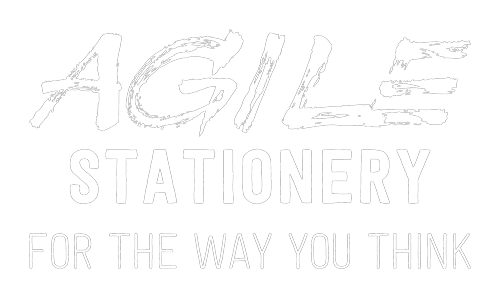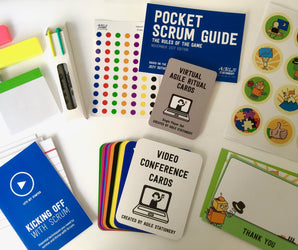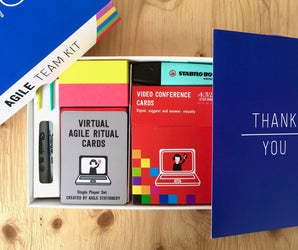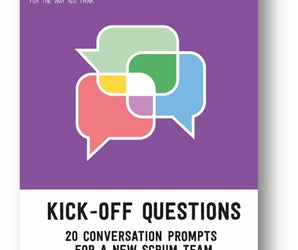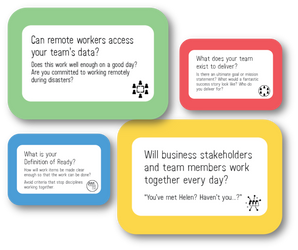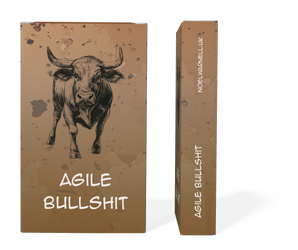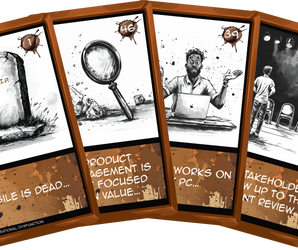Paul Goddard re-joined us at an Agile Games Workshop to talk about his new deck of Sprint Planning warm up exercises.
Paul last spoke at the beginning of lockdown in March 2020 at a time when toilet paper was in short supply, Zoom was something new, and we were just getting used to the idea this wasn’t a three week lockdown. It was a little strange to have him back in similar circumstances 10 months later. More on that later.
We asked Paul back because planning is a key activity for the first quarter. You will either be preparing a high level plan for the year, starting to drill into details, conduct your first sprints in a new direction, or sprinting again on fresh legs.
After a few minutes of settling in, Paul had reminded us of his coaching background and his interest in improvisational theatre, known widely as improv. His book "IMPROVing Agile Teams" is an effort to bring insights from his hobbies into his work. His book brings insights to many areas, but The Sprint Planning Kick-Start deck addresses the need for Psychological Safety and Spontaneity.
For agile audiences, Paul defines Spontaneity as a flow of creative ideas, in particular, into the complex Cynefin domain where creativity is of most value.
Paul calls on John Cleese, a ridiculously successful comedian, to explain that creativity is a process, not a talent, and we can elect to follow this process and be creative if we are aware of a few psychological necessities.
We then stop for a minute to draw a pig left handed in 10 seconds - a pre-selected exercise from the deck. Then we share our... variable... successes on our Zoom cameras. It's fun, they are mostly terrible. We laugh.
We have demonstrated a way to create the first necessity: a sense of safety. None of us produced a perfect pig. It was OK. It seemed like a great way to set the tone, which of course it did on this call.
Paul links this sense of safety he just created to Patrick Lencioni's Five Dysfunctions of a Team, pointing out that a lack of safety or trust is the fundamental dysfunction.

We stop again to draw a bird upside down in 5 seconds with our preferred hand - another challenge from the deck. A few of us manage to draw a fairly complete outline. Most of us have either webbed feet pointing up or a triangle pointing somewhere. There are a few wings around. They are all terrible, but quite similar. We laugh again.
Paul observes that the time limit and caused us to be brutally objective about the shape of a bird, we had to be, or we would fail to draw something that looked like an upside down bird. We'd achieved some spontaneity by opening up to the world as it is.
The last challenge is to think of as many uses as possible for a household object. We got everything from cooking different foods, to reconstructing ancient human faces, to providing vehicles for marsupials. It got a bit mental.
Paul explained we had reached the Groan Zone, a point in any brainstorming session where the ideas are so whacky they begin to challenge the patience of participants. It is a useful clue to show that you have probably got past the obvious easy solution, like cooking in our case. I noticed later that this is something John Cleese also discusses (at the second reference to time), as the more obvious solution is sometimes of lower quality. Whacky ideas might be wasteful to pursue but you have to ensure you get past the obvious.
At the end of the session we started picking challenges at random and had fun.
During the Q&A, conversation inevitably drifted back to lockdown. At the event last year there was an atmosphere of shock and a desire to find new ways. This time, the there was a palpable sense of befrazzlement as if we had long ago switched to a backup circuit which had since burnt out. We were now sustained by twisting melted scraps of wire back together, like the fuse box at a student digs.
Paul reported that video was more frequently switched off during Zooms. People reported working with colleagues they had never met in person, or even seen on camera. Hairstyles had grown out. People stayed to chat long after the end of the event, perhaps because they needed to find a way to reconnect with the world.
Hopefully, the fun and games with paper and pen had brought a little joy to our individual corners of locked down Britain.
